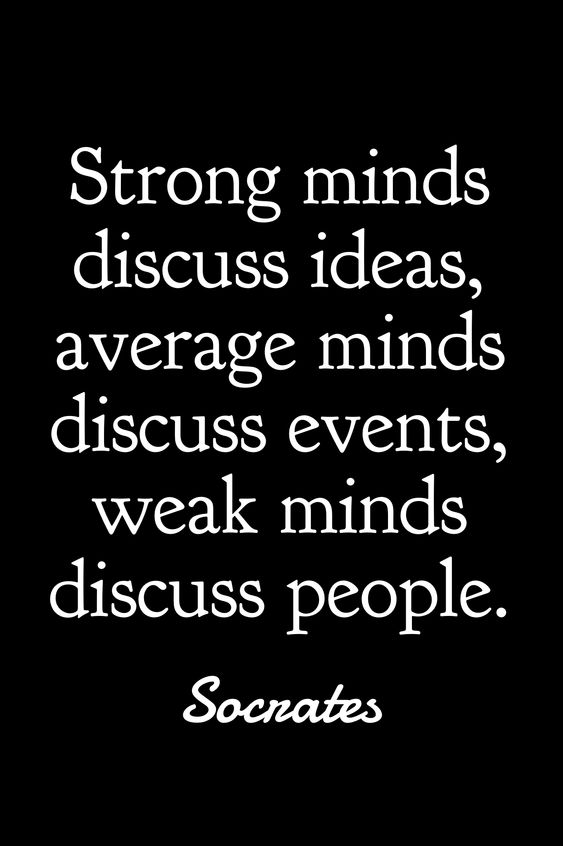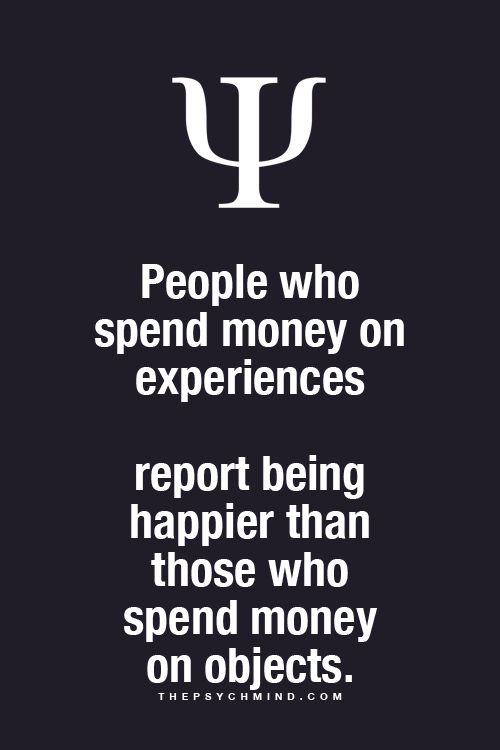
Buss & Perry in 1992 published an aggression questionnaire which is extremely subjective and inaccurate when it comes to determining how aggressive you are as an individual. You are supposed to respond to the statements or questions presented with a 1 to 5 scale with each number having the following meaning-
1 = extremely uncharacteristic of me 2 = somewhat uncharacteristic of me 3 = neither uncharacteristic nor characteristic of me 4 = somewhat characteristic of me 5 = extremely characteristic of me
If I have to resort to violence to protect my rights, I will.
Logically if you assume that violence is necessary to protect your rights then of course you will. This statement in no way determines how physically violent you are as an individual and even if you answered 5 that it is extremely characteristic of me it would in no way determine the degree to which you are an aggressive personality.
I have become so mad that I have broken things.
If you become mad because you found out that your spouse cheated on you and you break the cellphone, TV, or car then this is almost justified physical aggression. If you become mad because your spouse did not come home on time and you break a glass or a plate then that is unjustified physical aggression and you may indeed have aggression problems since such little events lead to overt physical violence on an object. The things that you break and what you get mad at are very important and this statement does not differentiate between the two extremes. Also of importance is the physical violence on an object and not a human so the degree or significance of the aggression is questionable and remains unanswered. If you answered 5 that it is extremely characteristic of me then you could perhaps conclude that the human has an aggression problem. A better statement to evaluate aggressiveness would be to make the statement that- I have become so mad that I have hit my spouse. Of course most humans would be afraid to answer truthfully for fear that they would be accused of spousal abuse.
Once in a while, I can’t control my urge to strike another person.
It makes a big difference who that other person is- a cheating spouse, a child, or a total stranger. Once in a while is also misleading because does it mean an aggressive impulse for no reason at all or could it possibly be once in a while wanting to strike your misbehaving child? Sure, if your statement specified the person as a child then the parent would not answer truthfully because of the fear of being accused of child abuse. This question in no way determines the degree to which you are physically aggressive.
I have threatened people I know.
If you threaten a child with punishment if they misbehave again, a tenant with eviction for not paying the rent on time, or an employee with firing for poor performance then this is justified threatening of people you know. If you are in a position of authority then you may threaten more than humans who are not in authoritative positions. The missing factor of importance is what you have threatened the people for. This statement is too vague to determine the degree to which you are physically aggressive.
Given enough provocation, I may hit another person.
Unless you are a strict pacifist most normal humans may hit another person if given enough provocation. Saying enough provocation implies that the person deserves to be hit especially if they hit you first multiple times and you could not escape his or her presence. A child’s first tendency after being hit is to hit back which is the biological act of selfdefense so this question in no way determines the degree to which you are physically aggressive. Becoming physically aggressive to defend yourself from violence is not a sign that you are prone to physical aggression.
If somebody hits me, I hit back.
A tall physically active male might answer 5 this is very characteristic of me but that in no way is a measure of his physical aggressiveness because this is an act of selfdefense and not overt physical aggression. Does this statement really determine to what degree you are physically aggressive in confrontational situations? No!
There are people who pushed me so far that we came to blows.
Pushed you so far mentally or physically makes a difference. If you come to blows over mental aggression then it is one serious thing but if you are pushed physically so far that you reacted defensively with blows then this is a perfectly normal reaction and not an indication of the degree to which you are physically violent. Also whether you are a female or a male would determine the way that you answered because females are generally less physically violent than males. How do you remove male female bias from this statement? It is not gender neutral or an objective statement to be answered by both sexes with equal validity.
I get into fights a little more than the average person.
Who really knows how many fights the average person gets into and are those verbal fights or physical fights since many consider severe arguments with their spouses as fights. You could also state I get into fights a little less than the average person. Both statements are too vague to determine the degree to which you are physically aggressive.
Now let us investigate the statements which are supposedly indicators of verbal aggression.
I tell my friends openly when I disagree with them.
Openly is often a sign of honesty when you have an opposing opinion and there is nothing wrong with stating your opinion as long as it is not in a fit of aggressive anger. This statement does not clearly state how you disagree with your friends so it is not a valid indicator of verbal aggression.
I can’t help getting into arguments when people disagree with me.
While arguments are a sign of verbal aggression there are skilled humans who discuss disagreements and back up their opinions with facts, stories, personal experiences, and the experiences of others. You could consider these humans as also being aggressive but in a socially acceptable way. You can disagree with humans with arguments or with discussion and no statement in this questionnaire makes this important distinction. Some forms of discussion can indeed be very aggressive verbally.
When people annoy me, I may tell them what I think of them.
If you merely say- you are annoying me, please stop. This is telling someone what you think of them and doing so in a non aggressive way. If you respond to an annoyance with name calling, an insult, a put down, ridicule, or try to humiliate them then this is definitely a sign of verbal aggression. Telling people what you think of them need not be aggressive in nature but merely a statement of fact appropriate to the behavioral situation. This statement is too vague to be a valid determiner of the degree of aggression of an individual.
More indicative of verbal aggression would be the following statements-
I often name call, I often insult humans, I often put humans down, I often ridicule humans, and I often humiliate humans. These statements are truer indicators of verbal aggression than the vague statements of psychologists in this pseudo test for aggression.
I often find myself disagreeing with people.
Disagreement is not always a sign of verbal aggression. You can disagree about the color of a dress, the tastiness of a food or drink, a weather forecast, and the quality of a car make. None of these disagreements and hundreds of others which I can think of are indicators of verbal aggression but are merely factual disagreements. If you have good taste in clothes, food, cars, friends, etc. then of course you will often be disagreeing with other people with common tastes and that does not necessarily make you verbally aggressive, just opinionated.
*The definitions used in this article are my own and not those of psychologists who have no accurate definitions that they use.
Hostile: adj. being against a subset(s) with some dislike and/or hatred which may result in an action(s) done to harm samer subset(s) sometimes with violence
Hostility can be a sign of aggression so let’s analyze the following statements which are supposedly signs of hostility.
When people are especially nice to me, I wonder what they want.
If you wonder what people want then you are being suspicious and not hostile and you are not trying to verbally or physically harm another human in a hostile way.
I wonder why sometimes I feel so bitter about things.
Feeling bitter is such a vague word that it can range from feeling offended by things to being vengeful about insults which you may get from other humans. Bitter can mean dissatisfied, pissed off, resentful, offended, dislike, and hateful. These feelings are certainly not an absolute sign of hostility unless you hate or dislike something with a passion. If bitter means a passionate dislike or hatred then yes it could potentially be a sign of hostility where you are tempted to do verbal or physical harm on a human.
If you sometimes feel bitter about things then those things are probably good reasons for feeling bitter such as cheating by a spouse or not being promoted in a job or not being able to afford the lifestyle of a successful human who doesn’t seem to deserve it in your personal opinion. Sometimes being bitter is a fact of life for many humans and not necessarily a sign of aggressiveness or hostility.
I am suspicious of overly friendly strangers.
Suspicion is not a sign of hostility especially if it is a reaction to a stranger whom you don’t know whether to trust or not since they haven’t earned their trust from you over an extended duration. Being suspicious is not hating or disliking the stranger which would be a sign of hostility or aggression.
I am sometimes eaten up with jealousy.
Jealousy: n. envying with angry resentment
Sometimes does not tell you how frequently you are eaten up with jealousy. Is it once a year, once a month, or once a week? Eaten up seems to imply intense jealousy so it is probably very angry resentment and envy. If you are talking about passionate dislike or hatred then it could be considered to be a sign of hostility if you verbally or physically try to hurt the human you are jealous of.
Are you jealous of a human who is threatening your marriage or are you jealous of a well off neighbor or friend? Who you are jealous of makes a difference and the degree to which you are aggressive or hostile also differs in each case. The statement is too vague to determine the degree to which you are hostile or aggressive in life in general although you may be very hostile or aggressive under certain justifiable circumstances.
At times I feel I have gotten a raw deal out of life.
Is feeling that you are leading a shitty life a sign of hostility? And if it is a sign of hostility then what is it against? Are you hostile against the whole world for your lousy status or some individuals in it whom you blame or dislike? This statement does not measure the degree of hostility that you may have and it doesn’t accurately pinpoint what or who you are hostile against.
I sometimes feel that people are laughing at me behind my back.
I sometimes laugh at people behind their back is possibly a sign of hostility towards others but the original statement is one where you are the victim of possible hostility. Is being the victim of hostility a sign of aggressiveness or hostility by you personally? No. This statement is incredibly stupid.
Other people always seem to get the breaks.
Once again this implies that you are the victim of bad luck or misfortune or the victim of hostility if you wish. This is in no way an indication of your aggressiveness or hostility towards others. This is another stupid statement.
Anger: n. very intensely sensing transient displeasure which is frequently a less intense form of hatred and (caused by a failure to achieve a goal(s) and/or caused by (overt and/or covert aggression)) and/or (caused by opposing (beliefs and/or opinions) and/or caused by immorality)
Anger can definitely be a sign of aggressiveness if it is overt. However, there are humans who get angry and don’t show it to the extent that others do and often hold the anger in or under control. Is controlled anger a sign of overt aggression? Certainly not but that does not mean that these humans are not aggressive in other ways and statements about being angry do not disclose these more subtle signs of aggression.
Some of my friends think I am a hothead.
Granted this is a sign of aggression but it doesn’t specify under what conditions you are a hothead or the frequency with which you are a hothead. Maybe being a hothead once in a while is OK and nothing to worry about if it is once or twice a month. If the frequency is once a day or once a week then maybe you have a problem which should be addressed with anger management. What things are you a hothead about? Some are justified if you become a hothead while defending your spouse or children from offensive remarks or insults.
I flare up quickly but get over it quickly.
I get emotional quickly but get over it quickly may be what the reader interprets so it may not just be a response to getting angry. A better way of making the statement would be to say- I get angry quickly but get over it quickly.
I have trouble controlling my temper.
This could be a sign of aggressiveness but it could also be a resentment for being victimized with an insult, a put down, name calling, ridicule, or humiliation. It may be a spontaneous reaction to being the victim of an aggressive action. If you can’t control your temper because you are constantly being victimized by an aggressor then it is not a sign that you are personally being verbally aggressive.
When frustrated, I let my irritation show.
When I get frustrated by people, I often get angry or When I get frustrated by things, I often get angry at people are better ways of determining the degree of aggression which you express on others.
I sometimes feel like a powder keg ready to explode.
If you sometimes feel like you are about to explode but don’t then this is not a sign of overt aggression on someone and it may indeed be wanting to explode because your job or task is not going well and you are angry at a thing and not a human. Anger about a human is aggressiveness and anger on a thing may just be a sign of frustration which may be your own fault so you are being aggressive on yourself.
Conclusion:
Verbal attempts at accurately determining the intensity, frequency, and type of aggressiveness in a human are simply not possible if you don’t define the words which you are using and beat around the bush with vague words like bitter, flare up, explode, raw deal, and blows. What almost all these statements reveal is the lack of much logical relevance to the issue of human aggression in the real world. Psychologists have subjective biases and humans responding to these statements inject their own personal biases which have little factual relationship to personal reality and are in no way true measures of their aggressiveness in life.
If you can’t accurately determine how aggressive an individual is then how can you possibly make general statements about aggression such as aggressive individuals have more or less selfesteem. Or aggressive humans are happier in life. Determining how happy a human is or how much selfesteem they have is even harder than determining how aggressive they are in real life.
No wonder psychologists come up with totally opposite conclusions. Some claim to have discovered that those with more selfesteem are more aggressive and others claim to have discovered that those with less selfesteem are more aggressive.
Psychologists don’t accurately define the words that they use and are playing around with too many variables such as differences in culture, age, gender, current and past emotional state, financial status, job or career, family, morality, health, etc. The net result is that most psychological research has no validity and is mostly subjective biased unprovable opinion and nothing more.
If you want to see the original questionnaire then use this link-
Click to access BussPerry_agression_questionnaire_scoring.pdf
If you liked this evergreen truth blog then read more of them, about 4400 so far, or read one or more of my evergreen truth books, especially EVERGREEN TRUTH, rays of truth in a human world filled with myths and deceptions.
For a complete readily accessible list of blogs and titles go to twitter.com/uldissprogis.
Enjoy!!!!!!
If you enjoyed this blog then here is a list of my most popular ones which you may also enjoy!!!
https://uldissprogis.com/zlist-of-my-most-popular-blogs/




























